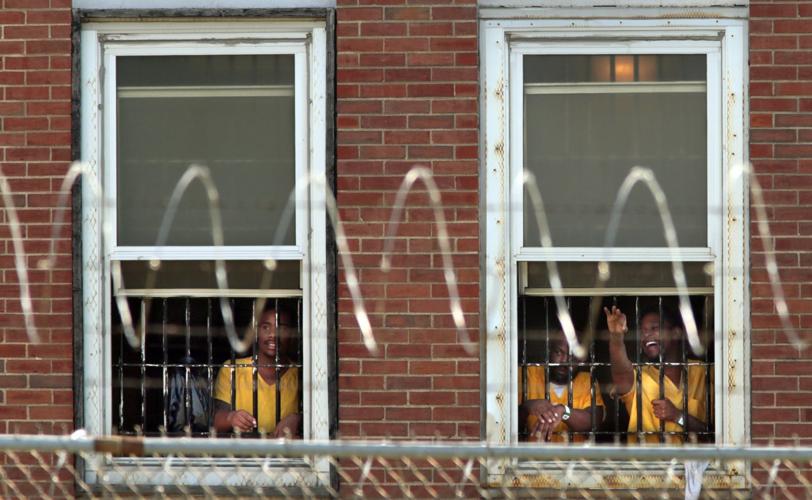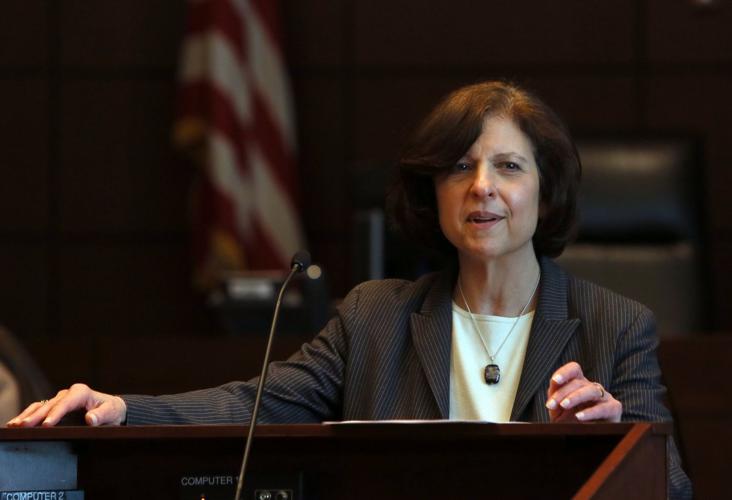Christopher Prener connects dots.
An assistant professor of sociology at St. ŽŃĖ█╚²╝ČŲ¼ University, Prener crunches data to better understand urban issues, like those in St. ŽŃĖ█╚²╝ČŲ¼ where he lives.
On Tuesday, Prener turned to Twitter, as he often does, to mourn the deaths of young victims of gun violence in the city. Three children in three days, including 3-year-old Kennedi Powell, killed in a hail of bullets on the cityŌĆÖs south side while hanging out with other children. ItŌĆÖs now .
Prener ŌĆö and a whole lot of other people ŌĆö see an explicit connection between the death of black children and the racist social media posts connected to some of the cityŌĆÖs police officers.
ŌĆ£We have a broken police department that has yet to demonstrate it is up to the task of policing our streets,ŌĆØ Prener wrote, ŌĆ£in part because the department itself has a vocal group of officers who harbor deep seated antipathy towards the residents they ostensibly serve. We have a wider political system that apologizes for the department (and therefore refuses to offer structural reforms to it), and has so far failed to offer any vision on addressing violence through effective policing, anti-poverty work, strengthened schools.ŌĆØ
People are also reading…
While the mayor and her Chief of Staff were busy trolling on twitter this weekend, SLMPD is facing another crisis of legitimacy. On one hand, we have the ineffectual response to officers' social media postings. On the other, we have multiple kids shot and killed in .
ŌĆö Christopher Prener (@chrisprener)
On the day Prener wrote those words, a federal judge was connecting dots, too.
In a decision that could well force the structural change a lot of criminal justice advocates have been pushing for in Missouri and across the nation, U.S. District Judge Audrey Fleissig in St. ŽŃĖ█╚²╝ČŲ¼ of holding poor people in jail simply because they canŌĆÖt afford bail.
FleissigŌĆÖs ruling came in a class-action lawsuit brought by a group of civil rights organizations, including The Advancement Project and , which alleged that city judges have been keeping inmates ŌĆö most of them poor and black ŌĆö locked up in the cityŌĆÖs Workhouse without even holding the constitutionally required hearings to determine if they could afford bail.
Her decision ties the ongoing push by civil rights activists to close the Workhouse to the cityŌĆÖs long practice of refusing to consider a defendantŌĆÖs ability to pay before deciding to hold them before trial ŌĆö before they have been convicted of anything ŌĆö on bail they simply canŌĆÖt afford.
ŌĆ£It is always in the public interest to prevent the violation of a partyŌĆÖs constitutional rights,ŌĆØ Fleissig wrote. ŌĆ£That is especially true here, where the collateral consequences of incarceration affect not only arrestees but also, by ripple effect, the stability of their entire families and thus the community.ŌĆØ
This is the point Kayla Reed and Inez Bordeaux, and public defender Mary Fox, and a growing group of advocates ŌĆö which now include the founders of ŌĆö have been making about the necessity to close the long-criticized and inhumane Workhouse: You want to reduce shootings on the streets? You want to save young, black children from death by bullet? Start treating young, black defendants with dignity and respect their civil rights.
ŌĆ£ItŌĆÖs time to start taking this stuff seriously. ItŌĆÖs not just a few bad apples,ŌĆØ says Blake Strode, the executive director of ArchCity Defenders, talking about racist police officers. ŌĆ£ItŌĆÖs frustratingly consistent, and it plays out in every law enforcement interaction.ŌĆØ
For too long, too many of those interactions led to clients like the ones Strode often represents being stuck in the Workhouse unable to make bail simply because theyŌĆÖre poor.
Fleissig is putting an end to that, and her landmark ruling should not surprise Mayor Lyda Krewson or other city leaders, who have resisted calls to close the facility. The ruling channels the best spirit of the regionŌĆÖs first African American federal judge, U.S. District Judge Clyde S. Cahill, who issued similar findings nearly three decades ago, when once again, the Workhouse and its decrepit conditions were in the news. Cahill used his ruling to comment on the state of St. ŽŃĖ█╚²╝ČŲ¼.
ŌĆ£These areas are usually in the poor and minority neighborhoods where jobs are scarce, education is substandard, and the promise of the ŌĆśAmerican dreamŌĆÖ has died. Certain neighborhoods in St. ŽŃĖ█╚²╝ČŲ¼ have become the target of intensive police activity, including high surveillance and ŌĆśbattering ramŌĆÖ search warrants,ŌĆØ . ŌĆ£Obviously, such intrusive tactics increase that resentment and anger toward law enforcement which always seethes below the surface. These intrusive tactics, coupled with detention because of poverty, lead to a destruction of confidence in the criminal justice system. ŌĆ” Mass detention for petty offenses now may give temporary relief but it only postpones the misery to come.ŌĆØ
Twenty-nine years later, little has changed. Elected officials are still apologizing for racist cops. Black defendants are still being held in mass detention for petty offenses, the constitution be damned.
No more, says Fleissig. No more, say Close the Workhouse advocates.
No more, says a young sociologist from SLU, who just wants the daughters of black parents in the city to have the same opportunity his will some day. To dream. To play in the front yard without fear. To do nothing more than pursue the happiness our founding fathers envisioned for us all.

























